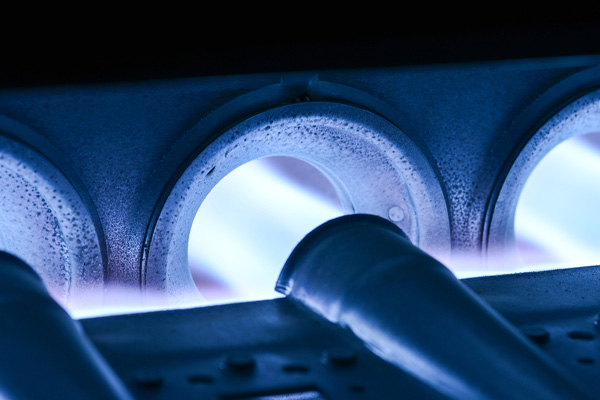What is the Difference Between a Furnace and Heat Pump?

A warm home is vital and an absolute necessity during the cold season. Therefore, it is recommended that homeowners invest in a heating system that can support all their needs. There are many types of heating systems available. However, two of the most commonly used ones are the heat pump and the furnace. It might look challenging to gauge which one of the two will work best for you. However, we are here to help to determine what the differences between a furnace vs. heat pump are. This way, you can make the best choice for your home.
What Is The Difference Between A Furnace And Heat Pump?
Contents
This article will look into the various capabilities, features, pros, and cons between furnaces and heat pump systems.
What Is A Furnace?
Also known as a forced-air distribution HVAC system, furnaces are gas- or oil-fired units used for heating your home or office. This system uses the ductwork to circulate warm air into different rooms of the house. The heated air is released to the rooms via registers or grills.
A furnace’s heat source is a flame. It heats the heat exchanger, which in turn, transfers heat to the air. A furnace fan pushes the air through the heat exchanger. It also has a flue pipe where the harmful by-products of combustion are disposed to.
What Is A Heat Pump?
Heat pumps do not generate heat. It works via transferring heat. The heat pump has a heat source that produces thermal energy. This heat is transferred to a thermodynamic system called a thermal reservoir. This is where heat is stored and circulated from. It is comprised of four major parts, namely, a compressor, a condenser, an evaporator, and an expansion valve.
Heat pumps utilize the heat from outdoors. After that, it combines with the unit’s electrical power and refrigerant to heat the air before it is circulated throughout your home or building. It works much like how an air conditioner does but in reverse. Heat pumps can also cool your home during the summer season. This makes the unit highly versatile HVAC equipment.
Furnace: Pros & Cons
Furnaces primarily run on either gas or heating oil. It is a relatively inexpensive option for heating your home. Not to mention, this type of heating unit is easy to install. Repair and replacements for your furnace are also affordable. You can also potentially save on electricity as time passes because furnaces can heat your home quickly. You do not have to worry about having cold spots as well because furnaces emit constant and even heat. This is a vital aspect, especially during the cold winter months.
However, there are also a few downsides to using a furnace. To begin with, using a furnace means increasing the risk of your health and well-being. Gas-fueled furnaces – when not properly maintained – can be a health hazard and can lead to severe issues such as carbon monoxide poisoning, explosions, and fire whereas electric furnaces consume a lot of power and put a strain on your budget. Furnaces can also only provide you with heat, unlike heat pumps, which can also cool your home when needed. This means that you will need to install a cooling system in your home as well.
Furnaces are also equipped with fans to move warm air. This process tends to be noisy, which can be annoying if you are sensitive to noise. These fans can also circulate dust and other debris throughout your home if the HVAC filter is not cleaned or replaced regularly.

Heat Pump: Pros & Cons
One of the main benefits of having a heat pump is its cooling function. This means you have one system that can provide you with cold air during the summer months, and warm air when the cold season arrives. It saves you the trouble of having to install two systems in your home.
It is recommended that heat pumps receive annual inspection and maintenance. This makes heat pumps easier to maintain compared to other kinds of combustion-based heating systems. Moreover, a well-maintained heat pump is a reliable heating system that will last you a long time. A heat pump has an average lifespan of 12 to 15 years of regular use. It is also highly energy-efficient and will reduce your carbon footprint.
When it comes to disadvantages, a heat pump comes with a hefty price tag. Aside from the unit itself, the installation by a professional HVAC company also increases the overall cost. Installation is more complicated and may need to have special planning permissions since heat pumps use electricity.
Heat pumps are also not advisable for places that experience freezing weather. This system does not work as well as furnaces in frigid temperatures. It might even get damaged from the extreme cold. If you still want to have a heat pump, then you also need to install a backup heat system for when the temperature drops extremely low.
Conclusion
The key to making the right decision for your home is knowing more about your options. This way, you can match it with your needs, budget, and home structure and design. If you want more experienced advice, contact your local HVAC installation technician. A professional can assist you from choosing the best make and model to the testing out the installation. They will ensure that you get the heating unit that best fits your lifestyle and home and that all your home heating and cooling needs are met.
Call McAllister Energy For Your Home Heating & Cooling Requirements
 McAllister Energy has the best NATE certified technicians in the area. We provide top-quality heating and cooling services such as tune-ups, installations, repairs, and replacements. We guarantee that our techs have the expertise and skill to service your heating and cooling system correctly and without delay.
McAllister Energy has the best NATE certified technicians in the area. We provide top-quality heating and cooling services such as tune-ups, installations, repairs, and replacements. We guarantee that our techs have the expertise and skill to service your heating and cooling system correctly and without delay.
If you need to replace your current HVAC system, our pros can recommend the best make and model for your home that is within your budget. McAllister Energy guarantees that we have the most competitive HVAC services rates in the area. We always put comfort, energy-efficiency, and indoor air quality, among others, at the forefront. To schedule a free, in-home estimate call McAllister Energy today.
You can click here to contact us now or call us at (856) 665-4545 to find out more!